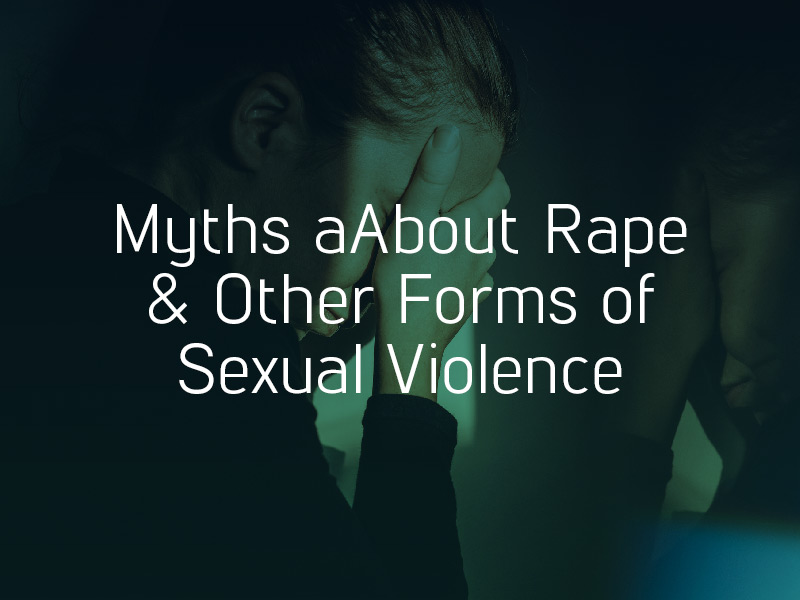While sexual violence is a widespread problem across the United States, there are many myths that surround it. Many people can believe that sexual violence falls under a single definition, or that most people who report sexual violence are not telling the truth. These myths can make it more difficult for survivors to seek help or recognize that the event that happened to them was an incident of sexual violence.
Myth #1: All Real Victims Report to Police
Sexual violence is an incredibly underreported crime for a number of reasons, and a lot of survivors do not report their assaults to the police. There are countless barriers to reporting an instance of sexual violence that survivors have to face, and many choose not to report for these reasons.
For example, some survivors may feel as if what happened to them was not serious enough to warrant a criminal investigation, while others may feel as if the police will not believe them or blame them for what happened. Some survivors do not trust law enforcement at all or do not want the perpetrator to face criminal charges – especially if he or she is a friend, spouse, or family member.
Myth #2: You Can’t Assault Your Spouse
Many people believe that sexual assault between spouses, intimate partners, or people with a previous consensual sexual relationship is not possible. This is not the case – intimate partner sexual assault is just as serious as a sexual assault committed by strangers or acquaintances.
All sexual activities require the consent of both parties, even if one person gave consent to sexual activities in the past. In addition, a person reserves the right to revoke consent at any time during sexual activity. If the other partner doesn’t honor that consent and continues to engage in sexual activity, he or she commits an act of sexual assault.
Myth #3: All Sexual Violence Is Physical
Sexual violence can encompass a wide range of non-consensual actions of a sexual nature. They do not have to be physical to be an act of sexual violence.
Inappropriate comments, directed towards a specific person or group of people, are an act of sexual violence. Unsolicited messages and pictures of a sexual nature are also acts of sexual violence. Sharing a person’s private photos or videos without permission are also acts of sexual violence.
These actions still cause significant harm and hardship to the victim and are not less serious than acts of sexual violence that are physical in nature.
Myth #4: It’s Not Assault If Drugs or Alcohol Are Involved
If someone is highly intoxicated and under the influence of drugs and alcohol, he or she cannot consent to sexual activity. Consent must be free and informed, and the person giving consent must be physically and mentally able to. Drugs and alcohol impair judgment, cause blackouts, and can make someone physically unable to say no or to push a perpetrator away. If someone has non-consensual sexual contact with another person who is too drunk or high to consent, he or she commits an act of sexual assault.
Myth #5: Perpetrators Are Always Strangers
Many people believe that strangers commit the majority of sexual assaults, and that sexual assault cannot happen between two people who know each other. However, statistics from the Rape, Abuse, & Incest National Network show that 8 out of 10 rapes are committed by someone who knew the victim. Stranger rapes only comprise 19.5% of these crimes.
Myths about sexual violence are incredibly harmful to survivors, and it is important that we work to dispel them. By understanding the truth about sexual violence, we can empower more survivors to come forward and to seek the help they need. If you are a survivor of sexual violence, you are not alone. Speak to a sexual assault lawyer as soon as possible to understand your legal options and to begin planning your next steps.

